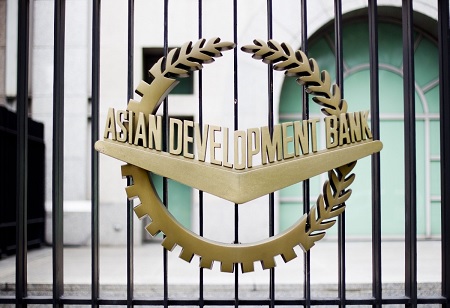
ADB Predicts AI Investments Will Propel Growth in Developing Asia

 The Asian Development Bank announced that increasing global investments in artificial intelligence, along with declining inflation, provide developing Asia with a strong foundation for ongoing economic growth in 2024 and 2025. Following an 8.0% rise in goods exports in July, the Manila-based institution has slightly adjusted its 2024 economic growth forecast for the region to 5.0%, an increase from the 4.9% projected in April.
The Asian Development Bank announced that increasing global investments in artificial intelligence, along with declining inflation, provide developing Asia with a strong foundation for ongoing economic growth in 2024 and 2025. Following an 8.0% rise in goods exports in July, the Manila-based institution has slightly adjusted its 2024 economic growth forecast for the region to 5.0%, an increase from the 4.9% projected in April.
Developing Asia encompasses the 46 emerging member economies of the multilateral lender, ranging from Kazakhstan in Central Asia to the Cook Islands in the Pacific. ADB Chief Economist Albert Park noted, "High-income technology exporters have profited from the increase in global semiconductor sales driven by strong demand for artificial intelligence products from China, Taiwan, and South Korea".
The bank lowered its inflation forecast for the region this year to 2.8%, from 3.2% in April, as food prices bottom out more slowly than expected in China. The inflation forecast for 2025 is also revised down to 2.9%, from 3.0% earlier this year, creating conditions for eventual monetary policy easing to support economic activity.
According to a report from the bank, declining inflation, rising global demand for electronics, as well as automobiles and ships from China and South Korea, along with a better growth outlook for major advanced economies, are enhancing Asia's economic prospects. The Asian Development Outlook report, which the lender publishes biannually, also indicates that non-electronic exports are experiencing growth, albeit at a more moderate pace.
The ADB however said Beijing would fall short of its target of five% growth for 2024, forecasting expansion of 4.8%. After 5.2% growth last year, the Chinese economy is expected to expand by 4.5% in 2025 according to the new report. "Protracted property sector weakness weighed on consumer sentiment and household spending, although higher investment supported by monetary and fiscal stimulus partially offset it", it added.
The lender cautioned that a rise in protectionism could occur, contingent on the results of the US presidential election in November. There may be higher blanket tariffs by the US on all global imports along with reciprocal increases in duties imposed by Beijing, which could have spillover effects throughout developing Asia. The bank stated that South Asia is expected to be the fastest-growing region this year, even though India experienced a slowdown in growth during the first half of the year. Driven by government spending and private consumption, India's economy is projected to grow by 7.0% this year and 7.2% in 2025.

